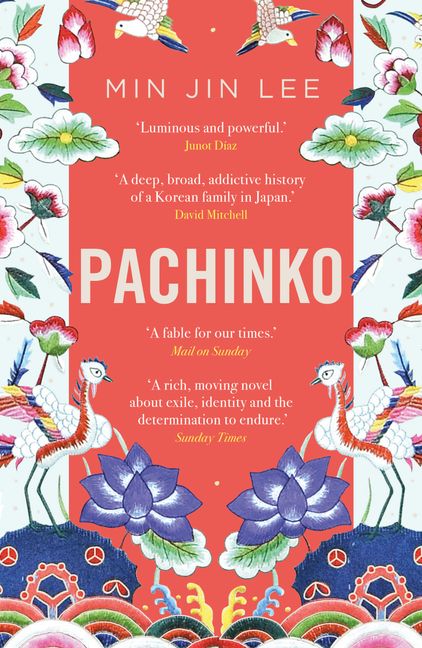Off The Shelf - Pachinko
Welcome to my column where each month I’ll take a book from the shelf to share.
By Kate Rendell
 I’ve arrived late to Min Jin Lee’s epic novel Pachinko, which was first published in 2017.
I’ve arrived late to Min Jin Lee’s epic novel Pachinko, which was first published in 2017.
With so many great books to read it can be hard to keep up with new releases. Of course, books continue to need readers in the years, decades, even centuries after first publication and late is better than not at all.
Pachinko is a luminous Korean family saga, set over four generations. Tracing almost a century, from 1910 – 1989, Lee details the legal and social discrimination faced by Koreans in Japan. Yet this is not a didactic story, rather many voices and many layers give shape to the complexity of this experience. Lee powerfully shows it is never as simple as victimhood.
Pachinko revolves around the central figure of Sunja, a young Korean girl who falls pregnant in circumstances ‘unforgivable’ and is ‘saved’ by the gentle and generous Christian minister, Isak. A life of exile to Japan is thus presented as salvation – yet is revealed to be so much more than this.
The story expands out through the perspectives of Sunja’s children, grandchildren and the various characters that encircle their lives during and after WWII in Japan. It is affecting reading – the relentlessness of the hardships and the daily struggle for survival are keenly felt. Shame is a powerful and ever-present force and death appears regularly in its mundane horror.
At times towards the end, I felt the introduction of some secondary characters were distracting and were not given the same richness as the central characters. Despite this I was swept up in the addictive power of this narrative.
Lee’s telling, in many ways, simple in its prose and structure, achieves grandeur in its scope. At this scale Pachinko is about many things: minorities, the politically disenfranchised, identity, Christianity, Shinto, WWII, nationalism, womanhood, sexuality and the Pachinko industry.
Ultimately though it is an intimate rumination on endurance and the moments of grace in spite of it all:
‘It was not Hansu that she missed, or even Isak. What she was seeing again in her dreams was her youth, her beginning, and her wishes – so this was how she became a woman. Without Hansu and Isak and Noa, there wouldn’t have been this pilgrimage to this land.
‘Beyond the dailiness, there had been moments of shimmering beauty and some glory, too, even in this ajumma’s life. Even if no one knew, it was true.’
I am glad to have returned to this deeply moving novel and even more glad to know something of this history. Pachinko is both devastating and quietly redemptive.
Kate Rendell works as a Project Coordinator in the arts, she is also a freelance writer and researcher. First and foremost though, she is a reader.
